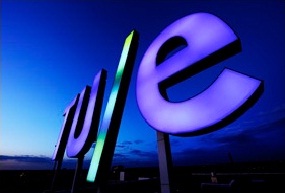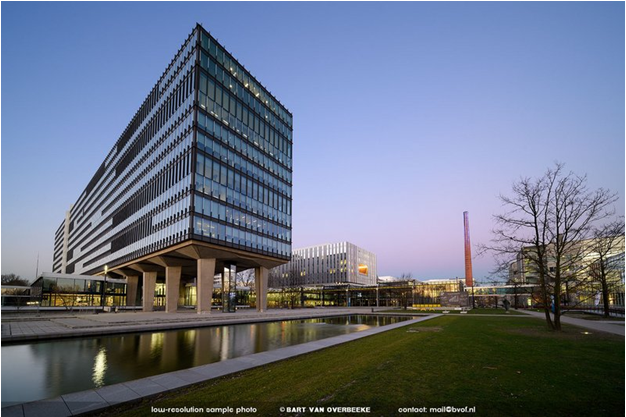
中、荷联合培养双硕士学位项目,旨在培养熟悉中、荷两国文化,具有扎实的专业基础和较高综合素质的、具备国际视野和竞争力的高层次创新设计人才。本项目于2016年启动2020年提升,由浙江大学与荷兰埃因霍温理工大学(Eindhoven University of Technology,简称TU/e)共同实施。TU/e是欧洲顶尖的理工科大学,创建于1956年,与浙江大学有着悠久的合作历史。其高质量的教学,科研在荷兰和国际上享有极高的知名度。它与代尔夫特理工大学、特温特大学、瓦赫宁根大学构成荷兰顶级理工大学联盟4TU。该校2021 QS世界大学排名120位。TU/e一直以创新性与实用性的课程著称,其毕业生广泛就职于欧美跨国公司,深受产业界欢迎。
本项目今年招生约5人,从软件学院一年级工业设计工程专业(信息产品设计方向)硕士生中选拔,语言要求为雅思6.5或托福90及以上。学生第一年在浙江大学学习,第二年到荷兰埃因霍温理工大学学习,第三年返回浙江大学完成学业。进入本项目的学生修业年限为3-4年,在国内或荷兰参加实习并完成硕士论文。
参加中荷双硕士学位项目的学生在学习期满、全部课程考核合格并修满规定学分、通过双方论文答辩之后,将获得浙江大学和TU/e双硕士学位证书。
中方费用:学生按必发bifa官方网站标准收费(具体见入学当年的招生简章)。荷方费用:学生在荷兰学习的一年按TU/e标准收费(一年15000欧元)并自行承担生活、交通、食宿、保险、护照签证等有关费用。
本项目按照中荷双方共同制定的培养计划,由浙江大学和TU/e的导师共同实施。参加本项目的学生将亲历两种不同的教育制度和文化,在浙大打下深厚的专业基础,在TU/e获取先进的专业知识和国际视野,享受两校各自的优势教育资源,接受良好的国际化教育环境的熏陶。参加本项目的学生在外语能力、国际交往、专业基础和综合素质等方面将获得明显的优势。
中荷双硕士学位班的招生选拔工作将在新生入学后进行,有意向的学生请发送邮件到yaoch@zju.edu.cn申请,邮件标题注明“申请中荷双硕士学位”。
Brief Introduction of the Department of Industrial Design, TU/e

Eindhoven University of Technology (TU/e) is located in a highly industrialized region in the Netherlands, known as the ‘Brainport’. This region is internationally recognized as a top technology area with a special focus on the integration of design and technology. When TU/e started discussions with the creative industries in 2000, they expressed the wish for a new type of academic engineer.
These engineers should combine insights into different fields of knowledge, as integrators of visions and ‘problemfinders’. In essence they should be the designers of Intelligent systems, products and related services in a societal context, addressing aspects such as adaptive behavior, context awareness and highly dynamic interaction. These systems meet the needs of today’s users or, even better, offer new, breakthrough possibilities leading to societal transformations. For these reasons the new Department of Industrial Design (ID), the ninth at TU/e, chose a specific new field within industrial design matching the evelopment, expertise and interests of the surrounding and international industries.
An innovative educational approach was developed for students in this new field, based on competency-centered learning, with integration of education and research as one of the fundamental starting points of a university program. Research was gradually built up from 2002 onwards, resulting in two well established research groups integrating their expertise.
The Department has set up a valuable international network, with staff and students originating from more than 25 different nationalities worldwide.
The mission of the department of Industrial Design at TU/e is
Research on and Education in the Design of Systems with Emerging Technologies in a Societal Context.
With this mission, we excel at the integration of various academic disciplines, including engineering, business and social sciences. This puts us in a strong position regarding the acquisition and execution of projects where “integration of emerging technology into everyday life” and “application of technology in a societal context” play a major role. This makes us unique among design departments world-wide and provides a solid basis for collaborations in international consortia, industrial research projects and within the university.
Integration of research and education
Research and education at the department are highly interconnected. In particular, Bachelor, Master and PhD students intensively collaborate with research staff in so-called squads dedicated to specific research topics.
Research through design
Research at the department focusses on two areas or thematic clusters: Future Everyday and Systemic Change.
The Future Everyday cluster investigates the everyday interactions between people and the highly interconnected technology that surrounds them. We measure, model and design for the user experience when individuals interact with social-technological networks in their homes, at work, in transit, while doing sport or going out.
The Systemic Change cluster focuses on designing innovations that have impact on systemic structures and groups of people, ultimately aiming to address large-scale issues such as urban health, future mobility and sustainability. Field data is used in novel iterative and circular research-through-design processes involving strategic alliances of stakeholders.
Competency-centered education
The Industrial Design curriculum is competency-centered, a unique educational model that brings together learning and working. Right from their very first day students learn, apply and develop the appropriate attitude, while functioning as ‘junior employees’.
Our department regards it as its task to train engineers (BSc and MSc) possessing a sound basis of knowledge, as well as a rich set of competencies that will enable them to develop successful careers in Industrial Design and a wide range of functions within the community.
Industry involvement
Eindhoven University of Technology is located in a highly industrialized region, known as ‘Brainport’. The region is internationally recognized as a top technology area with a special focus on the integration of design and technology. The department collaborates extensively with companies in the region. They had expressed the wish for a new type of academic engineer, and were involved directly when the department was established in 2001. Today companies have a natural involvement in our education and research process, and work together with us in different ways in these areas.
Internationalization
Our department has set up a valuable international network, and now has staff and students of more than 25 different nationalities from around the world. We initiate and maintain many international contacts with both institutes and (multinational) industries, resulting in exchanges of students and staff and the realization of international research programs. Partners from four continents (Europe, USA, Asia and Australia) work together in this network.
People
We offer students and staff an international and academic, in other words intellectually stimulating, study and working environment that will inspire them to broadly-based personal development, social and cultural engagement and an entrepreneurial attitude.